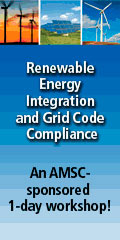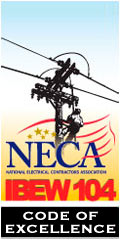It Takes a Community
 Print this article | Send to Colleague Print this article | Send to Colleague
I was recently in Johnson, Vt. conducting a class on "Dealing with the Public" for lineworkers from five surrounding towns. When the class ended and the room was empty, I was unplugging my computer and packing away notes when I happened to look out the window.
There in the parking lot were the majority of my students. They were clumped together in groups of two or three, in some cases five, talking for at least 15 minutes before getting in their trucks and driving away. One phrase came to my mind and I said it out loud: "Communities of Practice."
If you have read my previous newsletter articles, you know I say repeatedly that learning is not restricted to schools or training courses, nor is it always organized and led by a teacher or expert. Learning takes place anywhere and anytime, and nowhere is this more true than with communities of practice (CP). Consider these three points:
Communities of practice is "social learning."
The main thrust of CP is that people are inherently social. We need to interact with others and we are quick to form groups. We do this for a variety of reasons—to report on experiences, exchange information, seek advice—all of which lead to an increase in knowledge. When we share tips and techniques for doing a job or discuss ideas for solving a problem, we are learning from others.
Communities of practice is informal learning.
The learning doesn’t have to be formal or even planned. When two or three persons gather around the water cooler, they are probably discussing a common business issue (unless they’re bemoaning the Red Sox season). A police chief once told me that when you see two cruisers parked side by side, chances are the officers are updating each other on a recent crime or reviewing goings-on in the neighborhood that bear watching. In both these examples, the learning is informal or spontaneous, and for that reason managers should not be too quick to break up the conversation. As Thomas Davenport and Laurence Prusak mention in their book, Working Knowledge, "Managers shouldn’t underestimate the value of talk."
Communities of practice takes place everywhere.
Although it’s easy to assume our learning is somehow separate from our daily lives, CP reminds us we learn as part of everyday experiences—in the playground, on the athletic fields, in the office and at home. It reminds us, too, that we are constantly changing roles in the process. Sometimes we’re learners, sometimes teachers and sometimes observers.
Etienne Wenger, a leading authority on communities of practice, has written, "If you’re serious about knowledge, you have to be serious about communities." I like to think the lineworkers in Johnson who attended my training session learned something in class. But I’m also betting that by the time they drove away that day, they had done some serious learning outside of the classroom.
Who is in your community? Who do you learn from?
|
|






